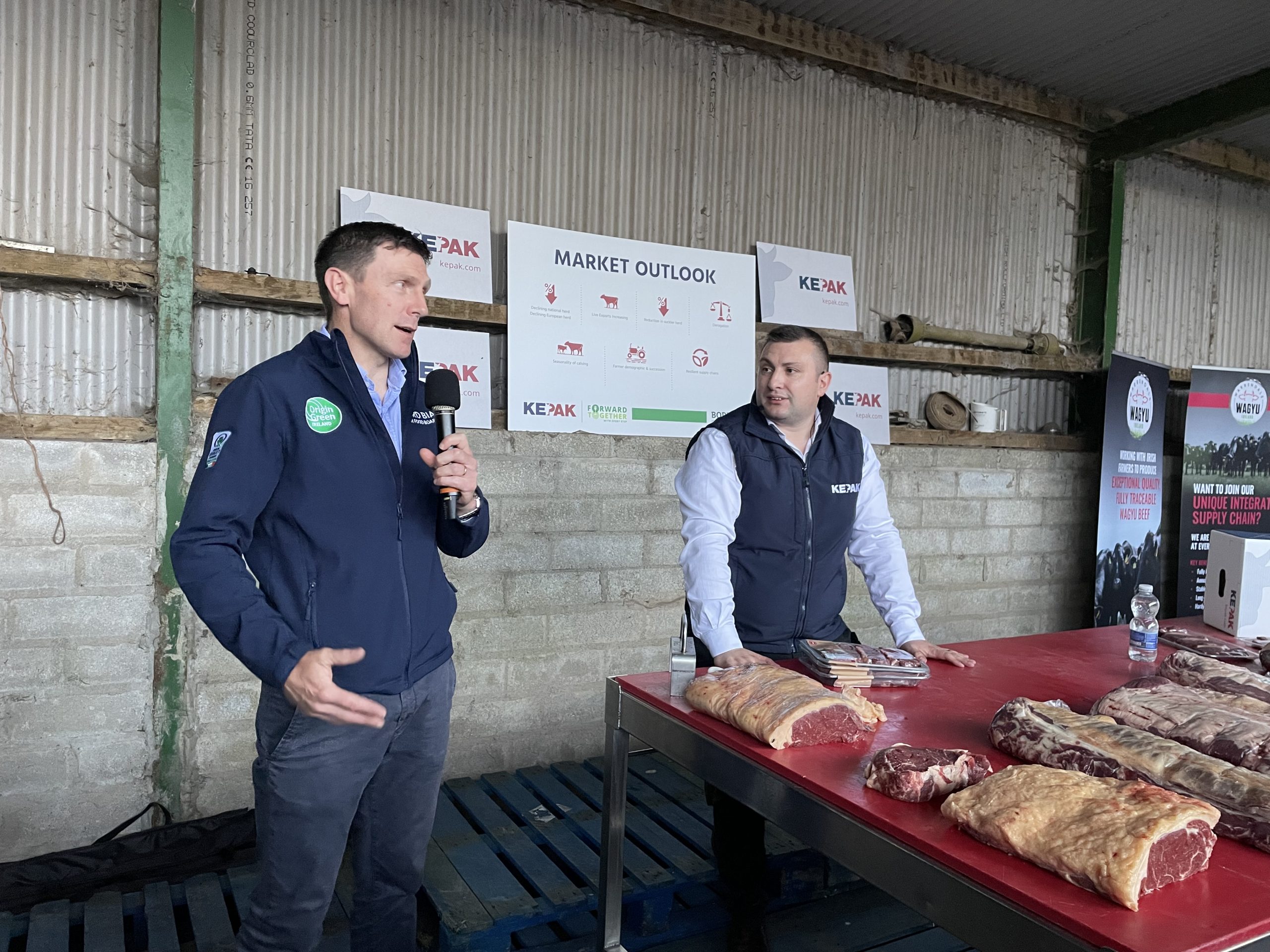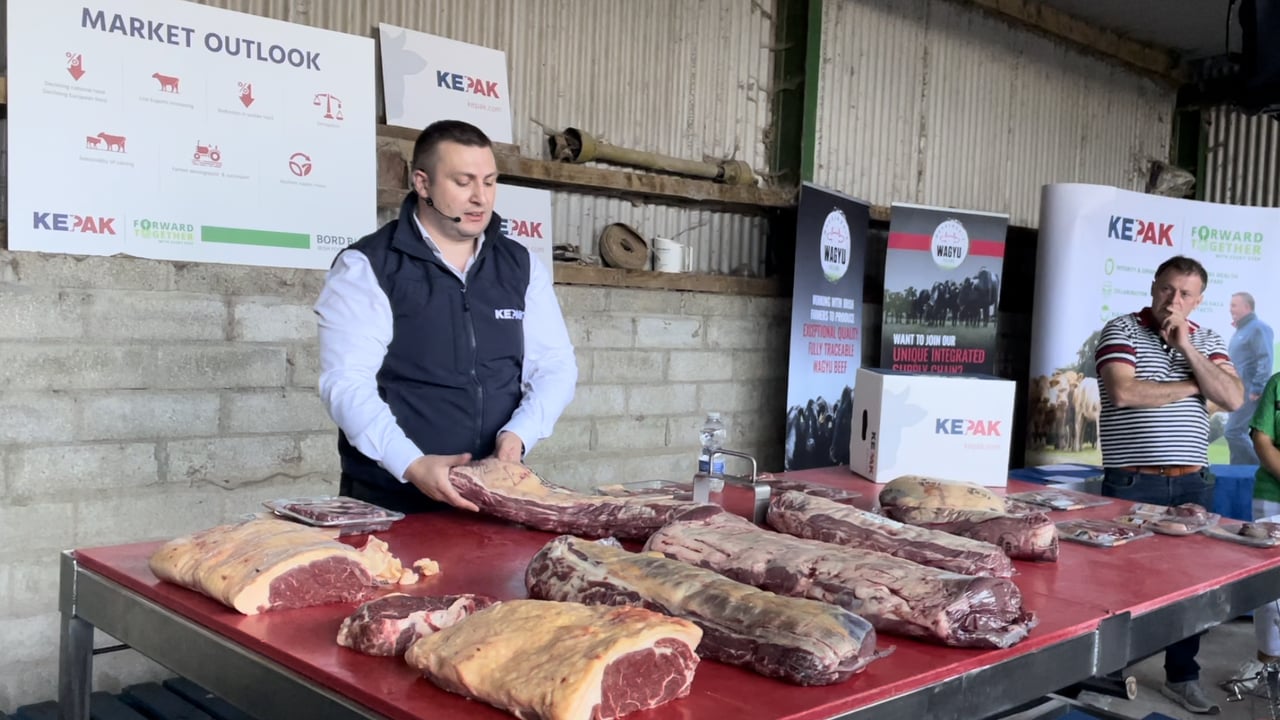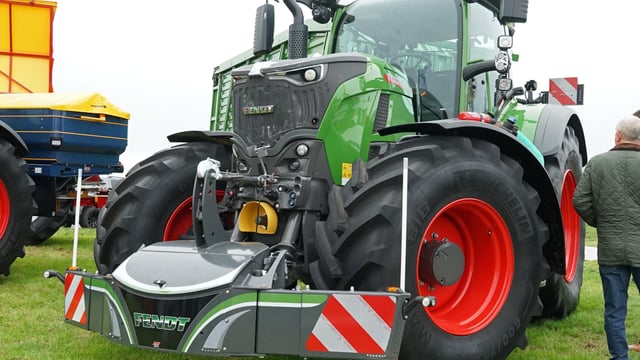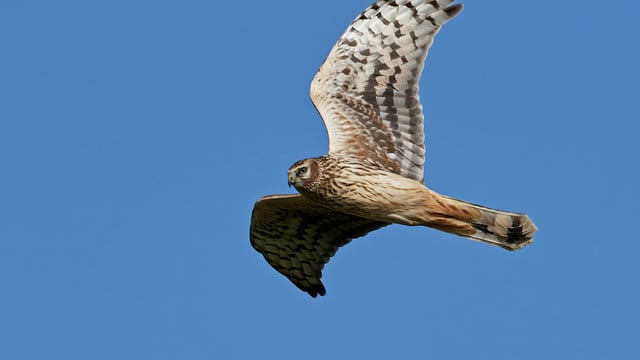Video: Kepak beef-farmer suppliers gather in Cork for on-farm info evening
Large crowds of farmers supplying cattle to Kepak Group's Watergrasshill processing site in Co. Cork gathered on the farm of Brian and Noelle O’Keeffe in Glanworth, Co. Cork, for a farm information evening on Wednesday, August 13.
The event was well attended with plenty of insightful information disseminated on the evening.
Farmers heard from expert speakers on topics including beef-market trends and customer demands, genetics and cattle selection, animal health and vaccination, as well as farm sustainability supports and funding.
After Kepak Group's head of agribusiness Mick O'Dowd welcomed those in attendance to the event, Kepak Watergrasshill site manager Eric Desmond shared some background information on the processing facility.
He said: "The site is on about 100ac of land. It was built in 1972 and Kepak acquired the site in 1997.
"In the first few years, the site would have processed about 40,000 cattle/year and in recent years due to investment and growth, that increased by about 50%. The site itself is processing cattle and also there's a retail plant on site which Kepak invested in in 2001.
"The site is one of a few integrated sites in the country that has slaughter, de-boning and retail packing on-site.
"The site itself also retail packs lamb and pork for our sister sites in Athleague, Co. Roscommon and McCarren's in Co. Cavan.
"There are 450 staff employed at Kepak Watergrasshill, a lot of whom are very local to the site and it contributes about €22 million/year annually in wages to the staff and also contributes to the local economy."
A 2MW turbine built on-site in 2019 supplies about 27% of the electricity on a weekly basis.
The customer-base Kepak Watergrasshill produces retail packs for includes Super Valu, Dunnes Stores, Centra and Lidl and from a primary point of view, supplies product into Tesco, McDonalds and Burger King.
The animal health and vaccination discussion was delivered by Pat Noonan from Millvalley Veterinary Clinic and Emma Sargent, Ruminant Area Veterinary manager for MSD Animal Health.
A discussion on genetics was delivered by Chris Daly from the Irish Cattle Breeding Federation (ICBF). Daly emphasised the importance of placing continued focus on improving the Commercial Beef Value (CBV) of dairy-beef calves and said that farmers buying calves should not be afraid to ask the seller to see the CBV of the calves before purchase as it will give farmers a better picture of the future beef potential of these calves.
Kepak Watergrasshill's procurement team Edward Quinn and Craig Buttimer gave a demonstration to farmers on what to look for when drafting cattle that are fit for slaughter.
Next up were Bord Bia senior manager of meat and livestock, Joe Burke and Kepak commercial sales director Chris Watson, who delivered an interesting presentation on beef markets and carcass specifications.

Watson demonstrated why factories have a preference for certain carcass specifications and weights by showing the subsequent prime beef cuts from in-spec and out-of-spec cattle and how they fit into what the premium markets are seeking.
Burke told farmers that the standards of the Sustainable Beef and Lamb Assurance Scheme (SBLAS) "is what we need if we are going to continue to supply these high-end, blue-chip customers, whether they be UK retailers or European quick-service channels.
"If we don't have it, we'll be down into more of a commodity-type market which at times might be fine and might sporadically deliver reasonably good returns but in the long-term, this is where we want to be. This is the horse we have backed."
The event drew to a close with complimentary hot food and those in attendance stayed around for conversation and discussion.





